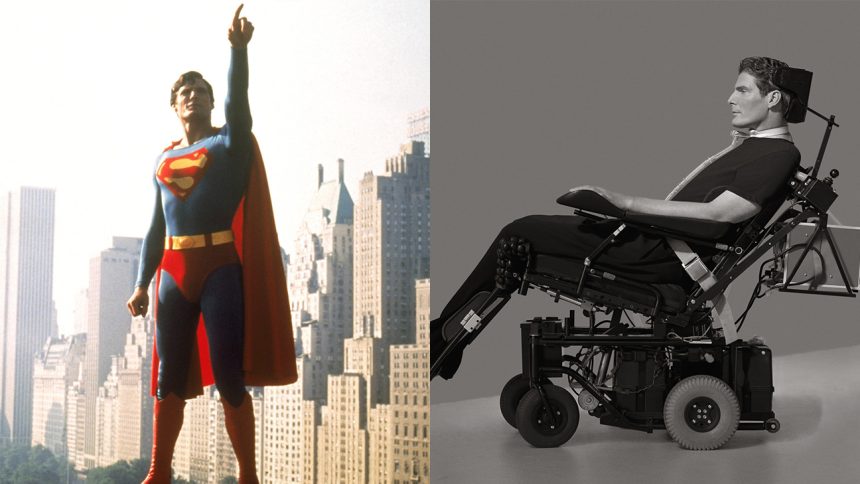‘Super/Man: The Christopher Reeve Story’ Filmmakers on How They Believe the Actor Would’ve Stood Up to Donald Trump Today
To borrow a quote from a superhero from another universe, Christopher Reeve always knew that playing Superman came with great responsibility.
In the 17 years between his onscreen debut as the Man of Steel and the tragic horse-riding accident that left him paralyzed from the neck down, Reeve understood that his public profile, while rife with potential downsides, afforded him the ability to champion many social, political and charitable causes. “He had realized, at a point where he began to be disillusioned with the idea of playing Superman and being identified as Superman, that actually he could use his voice and the fact that people knew him in this role to be a power of good in the world,” co-director Peter Ettedgui tells The Hollywood Reporter.
In Super/Man, Ettedgui and fellow co-director Ian Bonhôte paint an intimate portrait of Reeve, who spent the last decade of his life completely reshaping the way the general public thinks about disability — all while grappling with his own new normal.
“We felt there was an analogy in terms of the illegal, immigrant orphan landing on planet Earth, arriving in the U.S., being raised on a farm and then actually becoming this person,” Bonhôte explains of Reeve’s new life after his accident in 1995, when he lost nearly everything, including his livelihood, and had to start over. “We made a film called Rising Phoenix about the Paralympics, and one of the athletes said, ‘Most of us start at zero, and we go to 100. Most people with disabilities start at minus 100 and then they go to 100 when they excel.’ Chris, at the age of 42, had to go back to minus 100. That’s a very interesting metaphorical comparison to Superman having to relearn everything on another planet and always having to prove himself and hide himself, or be bigger than what he was.”
Even before his accident, Reeve was involved in environmental and human rights causes as well as an advocate for artistic freedom of expression. “There was the Creative Coalition, which Chris founded, which was designed to give people who worked in the creative and screen arts a platform from which to speak about things that they were passionate about,” says Ettedgui. “There was a certain property developer in New York who wanted to develop a horrific modern-town plan, and Reeve led the objections to it. The property developer was, of course, Donald Trump.”
Jeff Daniels told the filmmakers that he believes if Reeve were still alive, he would have faced off against Trump in the political arena, too. “But he wouldn’t have entered it for his own gain,” Bonhôte says. “The way he was engaged with people was not just for alliance and power; he saw that things could be changed for the better for American people.”
Adds Ettedgui: “He grew up in a privileged, possibly even slightly entitled background, but he was a very kind man. He realized that he had certain advantages in life, and I think he always evinced that kindness and empathy with other people. But it took on a whole new nature after the accident.”
Reeve’s legacy of advocacy work has been carried on by his children, who serve as board members of his foundation. “Each of them carries something of their dad in them,” Ettedgui says. “It’s so interesting when you have three people who are very close to each other but have distinct personalities onscreen, and each brings a different version of what love is to the relationship between a child and their father.”
This story first appeared in an August stand-alone issue of The Hollywood Reporter magazine. To receive the magazine, click here to subscribe.







